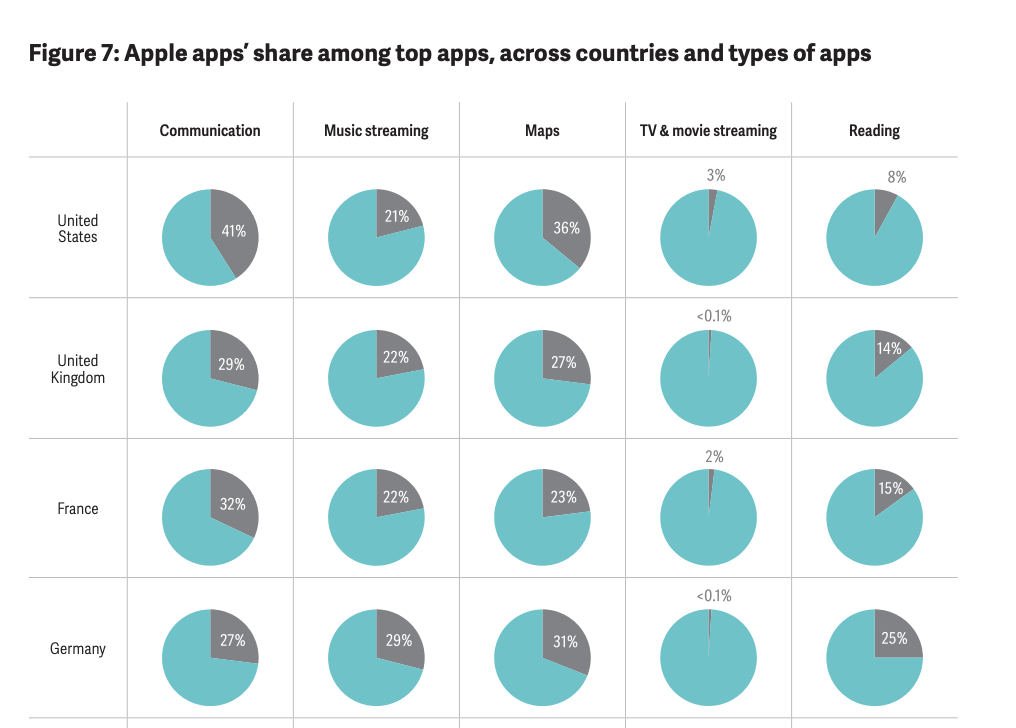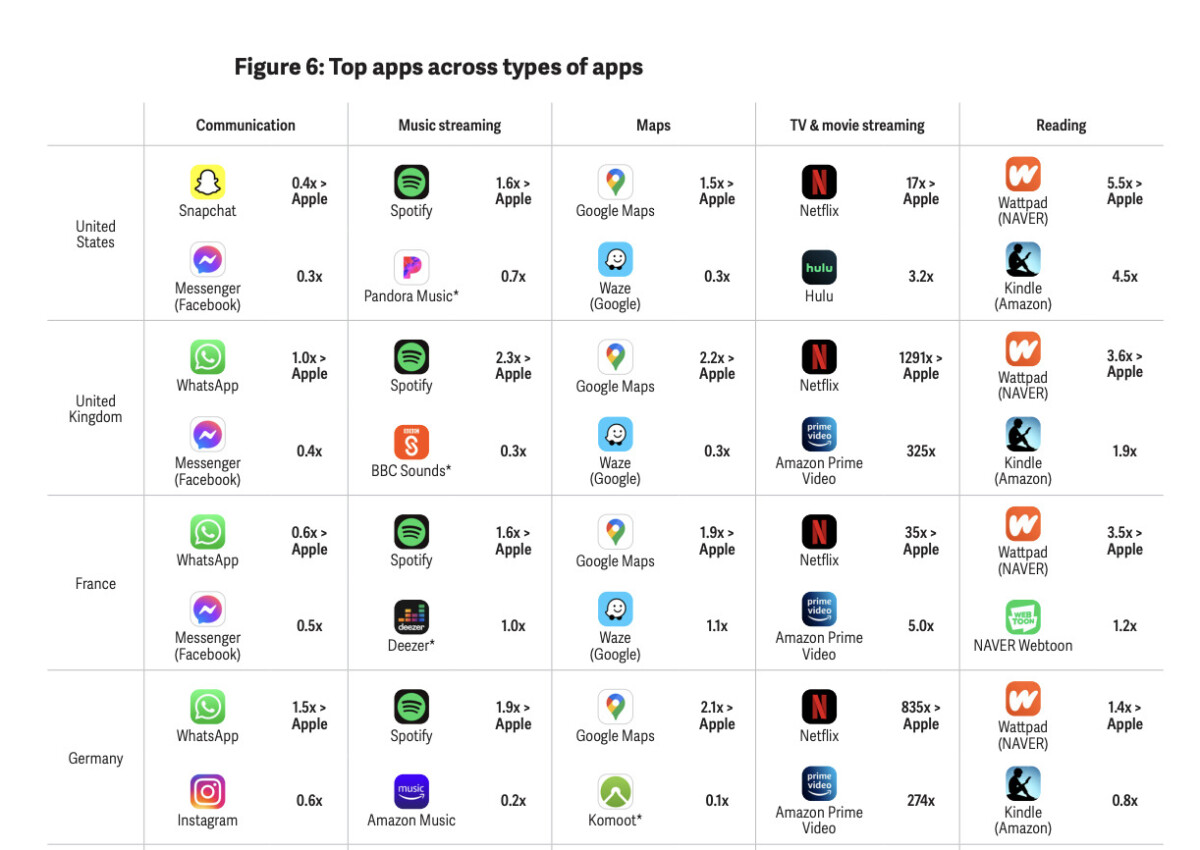Analysis Group recently published a study on the App Store and made an inventory of Apple applications against the competition. And the conclusion is clear: Netflix, Spotify and Google Maps are much more popular than home apps. And to think that it was Apple who funded the study…
Pay to be criticized or Apple’s version of the phrase hold out the stick to be beaten. This is somewhat what emerges from the latest report published by Analysis Group, an independent research firm, on the App Store and its applications. And the most surprising, at first sight, is the fact that Apple is behind the request, even if its authors recall that “theThe conclusions and opinions expressed are exclusively” theirs.
So, with regard to the 48 pages of the study entitled The success of third-party applications on the App Store we make a first obvious observation: Analysis Group shows that iPhone users are much more often on popular applications like Netflix, Spotify or Google Maps rather than on their Apple equivalents like Apple TV+, Apple Music or Apple Maps.
Success is other people
Analysis Group first clears the environment offered to users by explaining how it has evolved in a few years, offering multiple options to developers and content creators. And the study focuses on the evolution of the App Store and its ecosystem, Apple apps (60 out of more than two million) and the availability of third-party alternatives which represent “more than 99.99% of the applications offered “, notes the study.
Even if Apple installs by default more than twenty applications on its devices, the majority are now uninstallable. But above all, the alternatives have multiplied over time, to become much more popular. “Our quantitative analyzes of app engagement (not just app downloads) demonstrate that Apple’s own apps are rarely the most popular in their category and account for a relatively weak “,notes Analysis Group.

And to cite Google, Amazon, Microsoft, Tencent, Baidu or even Kakao (Korea) as major or “local” players with alternatives that work much better than Apple applications. Or even TikTok and other Bumble or Kayak which meet with resounding success without Apple having identical proposals on these themes.
Victim of his own system?
But do not believe that we are crying hot tears in the bays of Apple Park after revelations that are not. Despite a slight slowdown, Spotify continues to happily dominate the music streaming market where Apple Music, which arrived later, has positioned itself as the dolphin. Similarly, Netflix is an unparalleled ogre in the face of the novice Apple TV+, even if the latter has outdone it by becoming the first SVoD service to win an Oscar for best film with CODA. And after a rather calamitous start, despite improvements and very useful functions, Maps has always struggled to catch up with Google Maps in notoriety.

The most popular video streaming apps on iPhone by country // Source: Analysis Group

The most popular music streaming apps on iPhone by country // Source: Analysis Group
No, what must probably be seen behind the publication of this study is much smarter. By proving that these third-party applications are extremely popular and that they are also doing very well financially, Apple tends to demonstrate that its system – in particular decried by some heavyweights who sometimes cried out about the violation of antitrust laws during the trial against Apple – Epic Games — does not harm them in any way and that hegemonic status is not necessary. The proof, its own applications are far from the mark. In terms of app dominance, that’s correct. But Apple remains the master of the place and the holder of the keys as the right of entry or not. And that is priceless in the eyes of many, including regulators.
Operation seduction for regulators
The multitude of applications compared to in-house apps, which are sometimes duplicated on an iPhone, is, for Analysis Group, “a reflection of how easily they (the users) can switch between applications“. A point that will go in the direction of Apple who wants to demonstrate that the company leaves the choice to the end consumer and the competition.
Because what Apple wants to prove here is that its operation in no way harms the developer of the star applications of its App Store as well as the bulk of the troops, the famous “small developers” who are in the majority and can therefore become tenors of iPhone. No more than its 15 to 30% commission taken on purchases. The flagship apps have the quality, Apple the direct link to the consumer who appreciates them. And it is therefore sold without prejudice.

“Over the years, third-party apps have been downloaded hundreds of billions of times and have become the backbone of how iPhone users use and rely on their devices,”summarizes the report. And that’s what Apple wants to tell US and European regulators: its business practices aren’t so bad for the developers of its App Store, quite the contrary.
An appeal also to the European Commission, which wants to limit the control of Apple and Google over their own application store to avoid possible non-competitive practices. Based on this report, Apple wants to show that it does not have to be concerning him. If it is indeed its platform, the company derives significantly less user benefit from it than its competitors to which it is even beginning to cede the alternative payment. Not sure that these arguments are fully heard by the legislators.
To follow us, we invite you to download our Android and iOS application. You can read our articles, files, and watch our latest YouTube videos.
